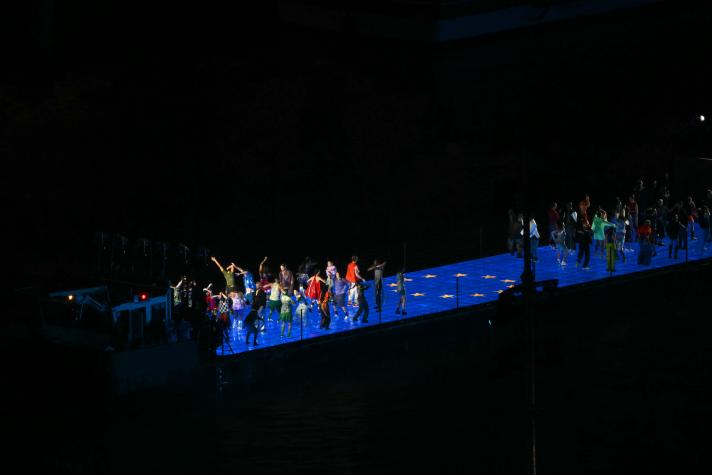We do it in our daily life – when we cycle to work or go for a swim. We watch and enjoy it live or on TV. Sport is all around us, representing an integral part of the lives of millions of Europeans. Especially so this summer, after the Paris 2024 Olympic Games, the biggest global sporting event of all, kicked off on 27 July, with an Opening Ceremony that was broadcast globally.
For the first time the EU featured very prominently in the Paris 2024 Olympic Games Opening Ceremony with a performance on a floating barge under the European Union motto “United in diversity”. On the boat were dancers, symbolizing youth, the spirit of openness and dynamism of the EU, who danced to Eurodance music.
This was a unique opportunity for the EU to promote its values such as peace, unity and solidarity, where diversity is a strength, and team spirit a key for success, linking them with those of the Paris 2024 Olympic Games.
The Olympic Games also offer the occasion to highlight the importance of freedom of movement and study in the EU, especially for young people, as well as EU policies and activities linked to support to sports and youth.
We also launched the European medal counter – Team Europe 2024 for the Olympic and Paralympic Games, where you will be able to follow and celebrate the achievements of EU athletes by counting their medals.
But what does the EU do to promote sport?
Sport should be for everyone. That is why the EU promotes it through its Erasmus+ programme, promoting dialogue, support and participation across all areas of sport policy. There is also the European Week of Sport which runs every year from 23 to 30 September, an initiative which promotes benefits of sport and physical activity across Europe at national, regional and local levels.
Making sport accessible for everyone is also about fostering a sense of social inclusion and integration. Every year, the Commission recognises organisations whose work uses the power of sport to improve social inclusion for disadvantaged groups through the #BeInclusive EU Sport Awards. It also works with all EU countries and national sport organisations to raise awareness about the importance of gender equality in sport.
Sport should also be fair, particularly in competitive and professional sports. The EU protects integrity in sport by fighting against doping, which it does by coordinating and sharing information with international partners. When it comes to match-fixing, the Commission takes an active role, as part of wider efforts to ensure competitive sports remain fair.
Through these efforts to make sport fairer, more inclusive and more accessible, the EU is helping to meet its core values of peace, unity, solidarity and diversity. And that’s how it should be. After all, sport plays a vital role, not only in individual health and fitness, but in shaping our wider European society.
More information
Share this article:


























